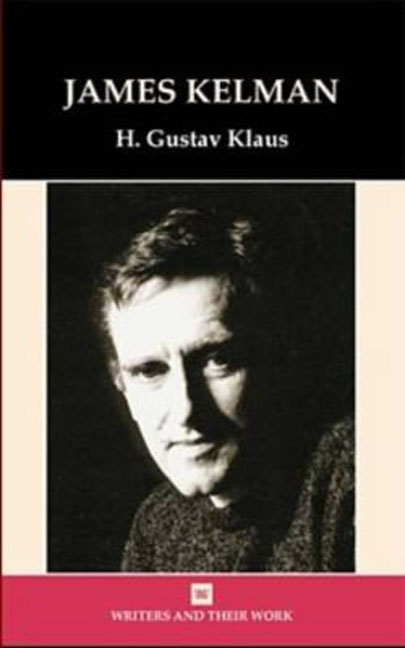Book contents
- Frontmatter
- Contents
- Acknowledgements
- Biographical Outline
- References
- 1 Introduction: ‘Fucking Realism’
- 2 Footloose in Country and City: The Early Short Stories
- 3 Unsettlingly Settled: The Busconductor Hines and A Chancer
- 4 Authority Flouted: The Plays and Essays
- 5 Contacts, Tensions, Emotions: Greyhound for Breakfast and The Burn
- 6 Under Surveillance, Resisting: A Disaffection; How Late it Was, How Late and Translated Accounts
- 7 Postscript: You Have to be Careful in the Land of the Free
- Notes
- Bibliography
- Index
1 - Introduction: ‘Fucking Realism’
- Frontmatter
- Contents
- Acknowledgements
- Biographical Outline
- References
- 1 Introduction: ‘Fucking Realism’
- 2 Footloose in Country and City: The Early Short Stories
- 3 Unsettlingly Settled: The Busconductor Hines and A Chancer
- 4 Authority Flouted: The Plays and Essays
- 5 Contacts, Tensions, Emotions: Greyhound for Breakfast and The Burn
- 6 Under Surveillance, Resisting: A Disaffection; How Late it Was, How Late and Translated Accounts
- 7 Postscript: You Have to be Careful in the Land of the Free
- Notes
- Bibliography
- Index
Summary
James Kelman is a ‘Scottish writer’, ‘a working class writer’, ‘a political writer’, ‘a dialect writer’, ‘a Glasgow writer’, ‘an angry writer’, ‘an experimental writer’, ‘a writer in the tradition of Kafka’, ‘a writer following Beckett’, ‘a post-modernist writer’. Any or all these terms might be (and have been) used to identify this most exciting and challenging contemporary author, but they are really no more than flags of convenience.
Ian A. Bell's observation made in 1990 has lost nothing of its pertinence. The proliferation of tags attached to Kelman's work highlights the reputation the author has built among critics, but also the difficulty of coming to terms with an œuvre that now extends to six novels, four major short-story collections, two volumes of cultural and political essays and several plays. It is a body of writing of international renown, as the American editions and the translations into German, French, Spanish, Dutch and Norwegian testify. Although the author was fortunate enough to have his books regularly noticed, and often praised, by the London Review of Books and The Times Literary Supplement as well as the leading newspapers, he also had, predictably, to contend with another kind of media response. The 1984 chairman of the Booker Prize panel, commenting on the enormity of the task of having to read some eighty novels in as many days, was reported as saying: ‘There is even a novel written entirely in what appears to be Glaswegian. Lacking a dictionary I soon gave up!’ (The reference was to Kelman's first novel The Busconductor Hines.) But this irritation was nothing compared to the chorus of outrage that greeted the decision to award Kelman the prize ten years later for How Late it Was, How Late. A dissenting judge called it a ‘disgrace’. ‘Foul-mouthed novel is a £20,000 Booker winner,’ the Independent blared. A journalist spoke of ‘literary vandalism’, and another actually invested time counting how often the word ‘fucking’ cropped up in the text so as to be able to voice his indignation in a quantifiable way. Booksellers joined in moaning about the failure to sell.
- Type
- Chapter
- Information
- James Kelman , pp. 1 - 9Publisher: Liverpool University PressPrint publication year: 2004



